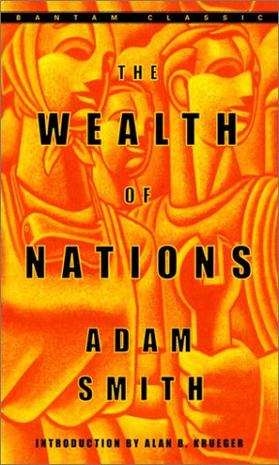-

The Wealth of Nations
Adam Smith’s masterpiece, first published in 1776, is the foundation of modern economic thought and remains the single most important account of the rise of, and the principles behind, modern capitalism. Written in clear and incisive prose, The Wealth of Nations articulates the concepts indispensable to an understanding of contemporary society; and Robert Reich’s Introduction both clarifies Smith’s analyses and illuminates his overall relevance to the world in which we live. As Reich writes, “Smith’s mind ranged over issues as fresh and topical today as they were in the late eighteenth century—jobs, wages, politics, government, trade, education, business, and ethics.” -

The Theory of Moral Sentiments
The 250th-anniversary edition of the influential treatise on social responsibility that has shaped leaders from Bill Gates to Barack Obama Best known for his revolutionary free-market economics treatise The Wealth of Nations , Adam Smith was first and foremost a moral philosopher. In his first book, The Theory of Moral Sentiments , he investigated the flip side of economic self-interest: the interest of the greater good. Smith's classic work advances ideas about conscience, moral judgment, and virtue that have taken on renewed importance in business and politics. -

The Wealth of Nations
The Wealth of Nations by Adam Smith It is symbolic that Adam Smith’s masterpiece of economic analysis, The Wealth of Nations, was first published in 1776, the same year as the Declaration of Independence. In his book, Smith fervently extolled the simple yet enlightened notion that individuals are fully capable of setting and regulating prices for their own goods and services. He argued passionately in favor of free trade, yet stood up for the little guy. The Wealth of Nations provided the first--and still the most eloquent--integrated description of the workings of a market economy. The result of Smith’s efforts is a witty, highly readable work of genius filled with prescient theories that form the basis of a thriving capitalist system. This unabridged edition offers the modern reader a fresh look at a timeless and seminal work that revolutionized the way governments and individuals view the creation and dispersion of wealth--and that continues to influence our economy right up to the present day. "Adam Smith's enormous authority resides, in the end, in the same property that we discover in Marx: not in any ideology, but in an effort to see to the bottom of things." --Robert L. Heilbroner length: (cm)19.7 width:(cm)12.8